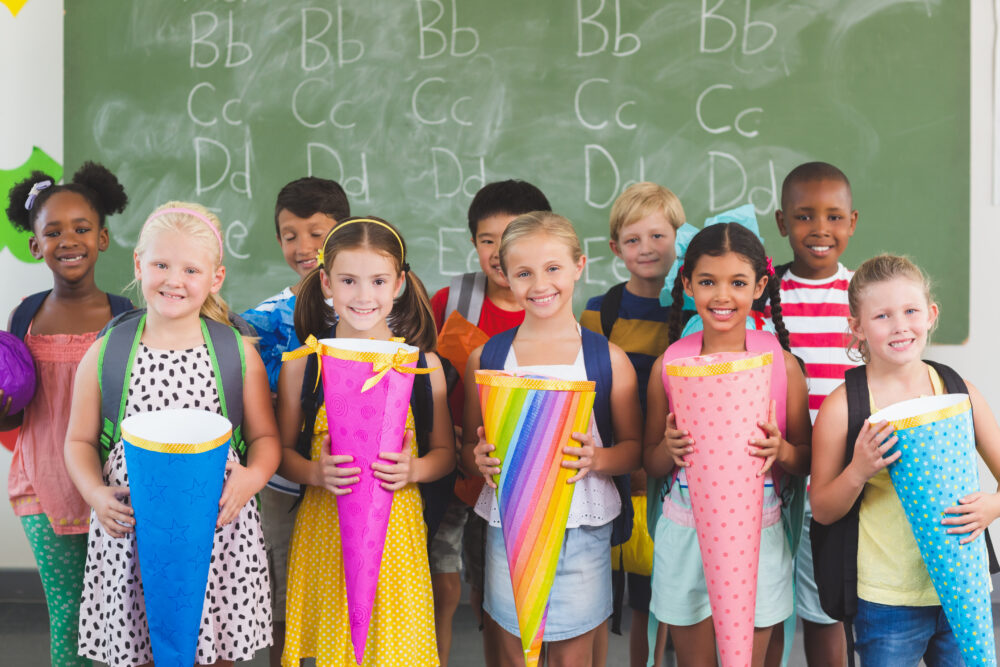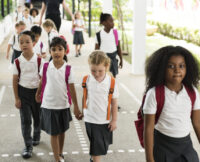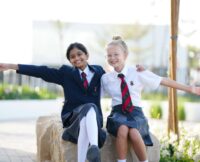While embracing new-age technology in learning and teaching remains critical, students’ mental wellbeing and staff support through mentoring and peer support networks become a priority for educators
Dubai, Jan 19, 2022: As schools deal with constantly changing conditions owing to COVID-19, education is emerging stronger than ever before from this global crisis, with teaching and learning practices evolving each day.
As an educator rightly puts it, the past year has been a lesson in reliance, adaptability, agility and flexibility.
With the emergence of a new variant of the virus, many schools have opted for a blended model while others have returned to face-to-face classes after almost two weeks of remote learning. In this context, principals from across the GCC talk about learning practices that are expected to shape education in 2022.
While the relevance of adoption of new-age technology is critical for most educators, many believe that the prolonged gap in in-person classes has impacted students’ social skills and mental wellbeing. According to school administrators in the UAE where face-to-face classes have resumed, improving the mental wellbeing of students and teachers will be of the highest priority. Supporting staff to improve their practice will also be key.
While COVID-19 saw a rise in the use of course-specific software tools, language apps and AI-powered platforms, 2022 will see a more purposeful integration of technology into all aspects of schooling, they say. Experiential learning is expected to strengthen as resources and equipment using virtual and augmented realities have become more accessible.
Meanwhile, educators are of the opinion that students will continue having greater autonomy over their learning in the year 2022. They will make informed choices about how, what and when they learn, while teachers play more of a complementary role, acting as coaches and mentors to support independent student learning.

David Wilson, Principal & CEO, GEMS Wellington School Qatar
Education continues to evolve at a rapid rate and I think the obvious trend that will continue to be at the centre of education will be the use of technology; how it enhances and changes the ways that teachers teach and students learn. The recent rate of development has definitely been accelerated out of necessity due to the pandemic and will continue to shape education over the next few years. However, education cannot solely focus just on technology and accept every new digital platform and innovation that comes along. Serious consideration must be given to the educational benefit of each approach and how they enhance the learning outcomes.
Face to face contact, socialisation and communication have all been compromised during the past two years and with high levels of screen time already being a concern amongst many, educators must take responsibility here for ensuring a healthy balance. The mental wellbeing of students must be at the top of any school agenda right now and I am extremely interested to look at the ways different schools approach this. Both curricula and extra-curricular design and the opportunities provided to students through these, along with high-quality support mechanisms and the overall culture of the school will be integral to how successful these key issues are addressed.
In this increasingly connected world, today’s students are more aware than ever of the greater global challenges facing them and their futures. They know they have to be active participants in this discussion and also responsible for the solutions and changes that are required. I therefore believe that the areas of social and global enterprise and responsibility will play a significant role in education in the coming years and will be driven forward by empowered student leaders.

Simon Jodrell, Principal, Dubai British School Emirates Hills
As we move into 2022, schools will have the effective support of students & staff in all guises, and family wellbeing as something on top of their priority list. Creating effective transition processes as students move from different phases of their educational journey will be key.
Developing and promoting a culture of collaboration within school communities and , looking at different approaches to supporting academic staff to improve their practice through initiatives such as peer mentoring, peer support networks and targeted individualised CPD are important.
Secondary schools looking at ways to meet the proposals related to the summer 2022 examination arrangements will be vital to in ensuring that students get the best possible opportunities. Schools will need to continue to be flexible in their curriculum provision to allow for the likelihood of formal examinations but the possibility of teacher assessed grades (TAGs).

Susan Rubin Varghese, Principal, The Indian Academy
The pandemic forced educators to learn the power of technology in terms of both pathways for communication and course-specific software tools, and there is no turning back. 2022 will see a more purposeful integration of technology into all aspects of schooling than ever before in order to individually customise services to students and families further.
Another trend will be the need for educational institutions to more purposefully tend to the mental health needs of students and educators, which have been exacerbated greatly during the pandemic. A failure to do so will have adverse consequences on school climate and undermine teaching and learning.

Rashmi Nandkeolyar, Principal & Director, Delhi Private School Dubai
Leveraging technology in the classroom for immersive experiences, collaboration and innovation, personalized transaction of the curriculum with more choices of subjects and flexibility of school hours (NB: KHDA has introduced the Rahahal programme) will be practiced.
Inclusivity in school will be reflected in differentiation in the classroom along with the vocational subject choices, teacher training and dynamic cells for pastoral care in schools. Similarly, agility by educators to cope with change in the face of the uncertainty and by finding innovative solutions for curriculum transaction will also be emphasised.
Online, face to face and hybrid learning will continue, as required. Emphasis on wellness by schools for all stakeholders, to counteract the stresses of lockdowns, job losses etc,. will be of great importance.
The teacher as the facilitator of knowledge will provide inspiration and scaffolding while students explore and construct knowledge via student- driven programmes such as Project Based Learning, Design Thinking. Similarly, focusing on teaching skill subjects in schools to ensure that students are well equipped for the real world will nurture personality development.
Value- driven curriculum to embed conscious and ethical global citizenship from an early age, soft skills, including agility, resilience and self-regulation will be taught in school as an essential part of the curriculum. Application rather than rote learning will be reflected in different modes of assessment such as multiple-choice questions, formative assessment, self and peer assessment.
Heavy syllabi are likely to be trimmed so that in depth learning of concepts results in deep learning while longer weekends will reflect the emphasis on independent learning for students and wellbeing for all stakeholders.
Furthermore, research- based Continuous Professional Development for educators will be an important indicator of growth and improvement for schools. Parents will be key partners in the education of students: a role that has been honed during lockdown.

Clara Martin, Acting Principal, The Apple International Community School
COVID-19 saw a rise in the use of online learning software, video conferencing, virtual learning and tutoring, language apps, and I believe these are here to stay. One reason why these online apps and tools are beneficial is because these help the students to learn at their own pace, to track their progress and work on their areas of improvement. These tools help in the shift from teacher-centred to student-centred learning and also help in developing critical thinking, creative, collaborative and application skills which are highly valued in the world today.

Rania Hussein, Deputy Head of School, Swiss International Scientific School
Not so much a trend but it’s been a lesson in reliance, adaptability, agility and flexibility. I don’t think our community of teachers, students, leaders and parents recognised how resilient they were until they were faced with the new realities of the pandemic. The trend I would like to see take shape is for us to continue to embrace this agility and recognise our own strength and spirit.

Neal Oates, Principal, Star International School Mirdif
At our school, we have found the bounce back from the pandemic to be hugely successful. We have seen a tangible improvement since students returned to face-to-face learning and progress was high as is to be expected.
However, we have also seen a noticeable longer term impact on student mental wellbeing and some issues with students’ social skills while interacting with their peers. The latter will improve with practice. However, there has never been a more important time to focus on student, staff and also parent mental wellbeing.
Thankfully with the Dubai wellbeing census and a 4.5 day working week, work life balance is clearly on top of the agenda here in the UAE. I believe that the mental wellbeing of children will become increasingly important in 2022, along with the wellbeing of teachers hopefully. The days where we required daily printed lesson plans and onerous marking policies will hopefully be behind us as a profession in 2022.
I also see a continued focus on research-informed practices amongst educators. This is essential for us as a profession to continue to support our students to meet their aspirations and have the best possible impact on their future.
Finally, a focus on the ‘future mindset’ will lead education to continue its investment in new technology, and I see the growth of AI-powered platforms such as Century Tech to be a key trend we will see in 2022.

Dr. Joseph Kotarski , The Superintendent, Dubai Schools.
As a result of the pandemic in these past two years, broad disruptions were imposed on the traditional classroom setting of teaching and learning, making way for the distance learning experiment on a global scale. As a result, learning communities were able to innovate new models of teaching and learning that moved far away from the traditional classroom and placed much more onus on students to be drivers of their own learning at their own pace, space, and time. Despite new ways of teaching and learning, face-to-face social interactions were void and proved to be irreplaceable.
Learning communities now are in a stronger position to utilize blended models of teaching and learning to be more student-centric and personalized as they returned to the classroom and leveraged new skills coupled with strong community cohesion. A trend that has taken shape and that should only strengthen in 2022 is that students will continue to have greater onus and autonomy over their learning and make informed choices about how, what and when they learn, with teachers taking a more complementary role acting as coaches and mentors to support independent student learning.

Andrew Kai Fong, Secondary Principal, GEMS Wellington Academy – Silicon Oasis
Evolution of ‘what is school?’
The pandemic, while challenging, provides the single most significant impact on education and the notion of school, in my 30+ years. Solutions we designed in response to those challenges have taught us many things, some of which should be evolved further, to keep school/education relevant.
Significant learnings that impact the notion of school are that learning can occur asynchronously, self-directed learning is a method by which young people can (with support) gain independence, being face to face serves a social/emotional function for young people as much as for conventional learning, some students thrived online, personalised learning cannot fully occur in a single mode system.
Schools should strategise for all eventualities – pandemic-related and/or simply modernising their educational offering.
Continuation of the ‘wellbeing imperative vs learning loss narrative’
The connection between these two aspects of the education dialogue is undeniable in my opinion. Never in history have all students been at the same point in learning as their peers. In addition, in these knowledge-rich times, who is to say what all learners should know and understand, and by when?
Why then do educational leaders insist on students needing to ‘catch up’? There are undoubtedly times in history where educational systems have been disrupted significantly – was ‘catch up’ required then? This creates parental expectations that ‘my child is behind’ which in turn places pressure and strain on staff and students to ‘fast- track’ aspects of curriculum – not conducive to effective learning.
Let schools evolve and deliver learning experiences for children which are relevant, responsive and flexible. Ask exam boards to interrogate their own motivations and moral imperative and design flexible and appropriate methods for evidencing individuals’ strengths and capabilities.
Continuing to challenge and design ‘what is a meaningful curriculum? what is worth learning’
Research is clear about what makes for impactful learning design. The book, The Future of Teaching: And the Myths That Hold It Back by Guy Clayton, exposes the flaws in the current system and presents the way forward. Applying these principles to meet local and global needs and create awareness and calls for action are crucial. The World’s Largest Lesson – an initiative to introduce students in schools to the UN Global Goals and encourage them to support them is a near perfect framework to design learning. The pandemic has interrupted the timeframe for reaching these goals, making urgency to start even more important. Again, in the search of self-managing, critical, empathetic, community-minded, multi-literate, globally competent young people, we need look no further for stimulus. Access these resources and see what is possible in your own school or network of schools.

Jaya Menezes, Principal, Apple International School
In the present scenario of ever-changing pandemic conditions, I can safely say that the most important future forward trends in education would revolve around the use of technology such as Artificial Intelligence-driven teaching programmes, immersive learning with VR/AR and gamification to name a few.

Karim Murcia, Principal and CEO, GEMS Al Barsha National School
At our school, like so many of our peers around the world, we have access to an unprecedented range of media and learning platforms and tools. This variety continues to grow and means that we are able to facilitate enhanced connectivity to the school and greater flexibility to accommodate students and families with different home circumstances. Over the past two years, GNS has developed ways for students to continue learning effectively from different locations in the world and at times where health and safety measures have required learners to be at home. This trend will continue as teachers become ever more skillful at blending and fusing this multimedia connectivity and providing strong narratives and visuals to stimulate the interest and maintain the attention of students.
Teachers at our school now have access to learning management systems and technologies which will make the tracking and personalization of the learning process even more effective. Teachers will be able to generate increasingly detailed and precise reports on the engagement and performance of their learners on a range of learning activities from various platforms. These technologies will free the teacher to spend more one-to-one time with students and design more differentiated learning for them. Opportunities for enriching experiential learning and practical application will become strengthened as resources and equipment using Artificial Intelligence and Virtual and Augmented Realities become more accessible.
While we learn so much every day about the almost limitless capacity and potential of technology, the COVID-19 crisis has taught us a great deal about the unrivalled value of the face-to-face learning experience. Whilst harnessing the advances made in the use of technology, schools will need to sharpen their focus on their holistic provision for the well-being of their learners and the development of essential skills. Institutions should offer a coherent programme of age-appropriate experiences and opportunities to support students in developing vital competencies that will support them through the uncertain times that we are navigating and prepare them for the next stages of their education and employment.








